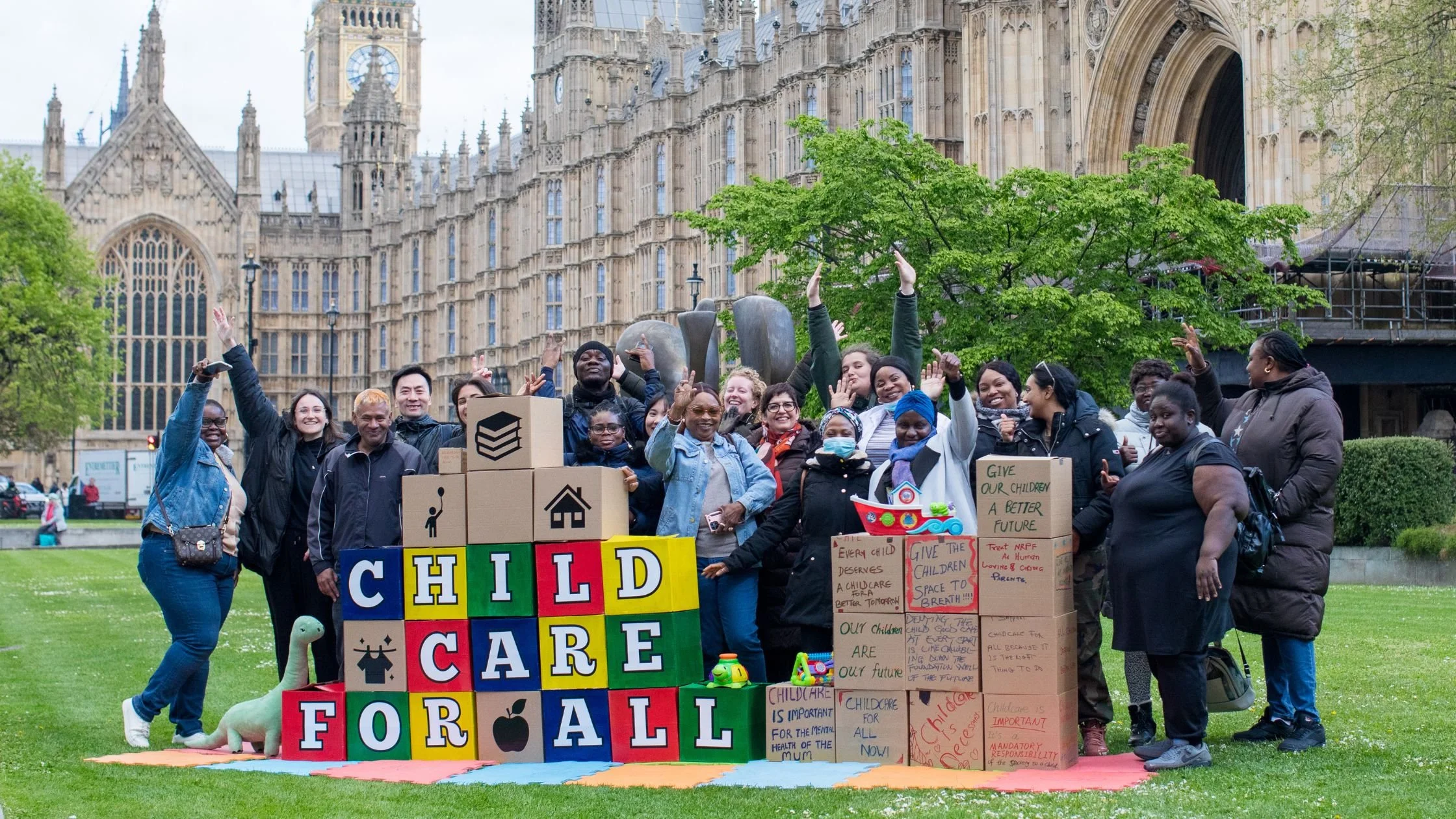
Influencing and Campaigning
It is vital we not only secure rights and provide support for people in crisis, but we also challenge the root causes of the crisis.
That’s why we influence and campaign on the issues and policies that bring people to our frontline services. Our approach combines conducting research, collaborating with other organisations, engaging the media, lobbying MPs, and mobilising the public to take action. We campaign with and alongside people with first-hand experience of the hostile immigration system.
Shaping policy on hostile immigration rules
Our frontline services give us expert insight into how harsh immigration policies push people into homelessness and destitution. We share our expertise with policy makers, feed into policy briefings, and we collaborate with other organisations like NACCOM, Crisis, and Shelter to shape the way they support those facing homelessness and destitution.
Check out our latest briefings and reports below:
Shaping public discourse on migration
By working closely with international, national, and local media, we work to shape the public discourse on migration. We share our expert knowledge from our frontline services to challenge harmful narratives and misinformation about migrants and refugees. We’re always striving to give space to Praxis group members and campaigners who have lived experience of the punitive immigration system.
Our recent campaign actions
The change we’ve achieved, together
Exposing the Windrush Scandal
Praxis was at the forefront of uncovering the Windrush Scandal. Our experience, expertise and work on the frontline supporting destitute and homeless migrants led us to identify a trend whereby people who had lawfully lived and worked in the UK for decades were being “locked out”, denied access to employment, accommodation, welfare benefits and healthcare on the basis that they couldn’t prove their residence status. We supported victims of the Hostile Environment policy to fight for their rights and helped raise awareness through the media.
“Mostly people assumed these were weird anomalies where something very specific had gone wrong. I realised how rapidly the problem was growing when the charity Praxis said it was seeing more and more cases every year.”
Amelia Gentleman, journalist at The Guardian
Free school meals for all, no matter their parents’ immigration status
In a major win for the No Recourse to Public Funds (NRPF) Action Group’s campaign, the Department for Education announced that they will extend access to Free School Meals to all families affected by NRPF. Thank you to all the supporters and allies who joined our call to make sure that free school meals stayed available to all children who need them, no matter their parents' immigration status. From our day to day work with people affected by the NRPF policy, which prevents people from accessing the welfare safety net, even if they’re living in poverty, we’re used to hearing regularly about the hardship they faced being unable to access to Free School Meals. A huge thanks to organisations such as Project 17, The Unity Project, Hackney Migrant Centre, The Children’s Society, Citizens UK and Food Foundation, along with many other allies, for their tireless work campaigning for this cause for years!
“We are tremendously happy to hear today’s good news. This promising development gives us hope. It is so important to safeguard children. This is a step further on our quest: we are closer to ensuring that one of the most basic rights of children, to be well nourished, are being met.”
Anna Berry, Praxis campaigner















